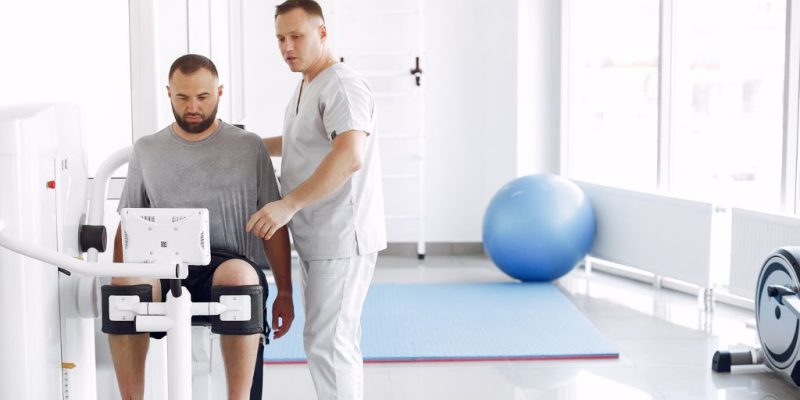
In the realm of mental and physical health, the terms “rehab” and “therapy” are often used interchangeably, yet they encompass distinct concepts with unique purposes and methodologies. Both play crucial roles in recovery and personal development, but understanding their differences is essential for individuals seeking help. This article aims to clarify these distinctions, highlight the benefits of each, and discuss what works best for the individual.
What is Rehabilitation?
Rehabilitation is a structured programme designed to help individuals recover from physical injuries, substance abuse, or mental health disorders. The primary goal of rehab is to restore function and improve quality of life. Centres offer specialised facilities that provide comprehensive care, typically involving a multidisciplinary team of healthcare professionals, including doctors, psychologists, physiotherapists, and social workers.
Benefits of Rehabilitation
Structured Environment: Support centres offer a controlled environment that minimises distractions and promotes focus on recovery. This structure is particularly beneficial for individuals recovering from addiction or severe mental health issues.
Comprehensive Care: In private drug rehab, patients receive holistic treatment that addresses various aspects of their condition. This includes medical care, psychological support, and physical therapy, ensuring that all facets of recovery are considered.
Peer Support: Being in a place where others are tackling similar issues allows individuals to connect with others facing similar challenges. This sense of community can provide emotional support and foster motivation, which are vital for recovery.
Access to Resources: Rehabilitation centres often provide access to a range of resources, including educational materials, workshops, and recreational activities, which can aid in the recovery process.
What is Therapy?
Therapy, on the other hand, refers to a broader range of treatments aimed at addressing psychological issues, emotional difficulties, or behavioural problems. It can take many forms, including cognitive-behavioural therapy (CBT), psychodynamic therapy, family therapy, and more. Therapy is typically conducted in one-on-one sessions with a qualified mental health professional, although group therapy is also common.
Benefits of Therapy
Personalised Approach: Therapy is tailored to the individual’s specific needs, allowing for a more personalised approach to mental health. The therapist works closely with the client to develop strategies that suit their unique situation.
Emotional Insight: Through therapy, individuals gain deeper insights into their emotions and behaviours. This self-awareness can be transformative, helping clients understand the root causes of their issues and how to address them.
Skill Development: Therapy often focuses on teaching coping strategies and life skills that can help individuals manage their symptoms and improve their overall well-being.
Flexibility: Unlike rehab, therapy can be conducted in various settings, including private practices, community centres, or even online. This flexibility makes it accessible for many individuals.
Key Differences Between Rehab and Therapy
While both rehab and therapy aim to improve an individual’s quality of life, their approaches and objectives differ significantly:
Focus: Rehab primarily targets physical recovery or substance abuse, while therapy concentrates on emotional and psychological healing.
Setting: Rehab often takes place in specialised centres, whereas therapy can occur in diverse environments, including one-on-one sessions or group settings.
Duration: Rehabilitation programmes tend to be more intensive and time-bound, often lasting weeks or months, while therapy can be ongoing and more flexible in terms of scheduling.
Team vs Individual: Rehab typically involves a multidisciplinary team approach, while therapy is usually delivered by a single therapist working closely with the client.
The Role of Rehabilitation Centres
Rehabilitation centres play a vital role in the recovery process for individuals struggling with addiction or severe mental health issues. They provide a safe and supportive environment where patients can focus solely on their recovery without the distractions of daily life. The comprehensive care offered in these centres ensures that all aspects of a person’s health are addressed, from medical treatment to psychological support.
Moreover, these centres often incorporate therapeutic practices into their programmes, blending the benefits of both rehab and therapy. This integrated approach can lead to more successful outcomes, as patients receive both the structured support and personalised insights into issues.
In summary, while rehab and therapy share the common goal of improving an individual’s well-being, they differ significantly in their focus, methodology, and setting. Rehabilitation centres provide essential support for those recovering from physical or substance-related issues, while therapy offers a personalised approach to mental health challenges. Understanding these differences can empower individuals to seek the appropriate help that aligns with their specific needs, ultimately leading to a more successful recovery journey. Whether through the structured environment of a rehabilitation centre or the personalised insights of therapy, both paths offer valuable benefits that can lead to a healthier, more fulfilling life.











